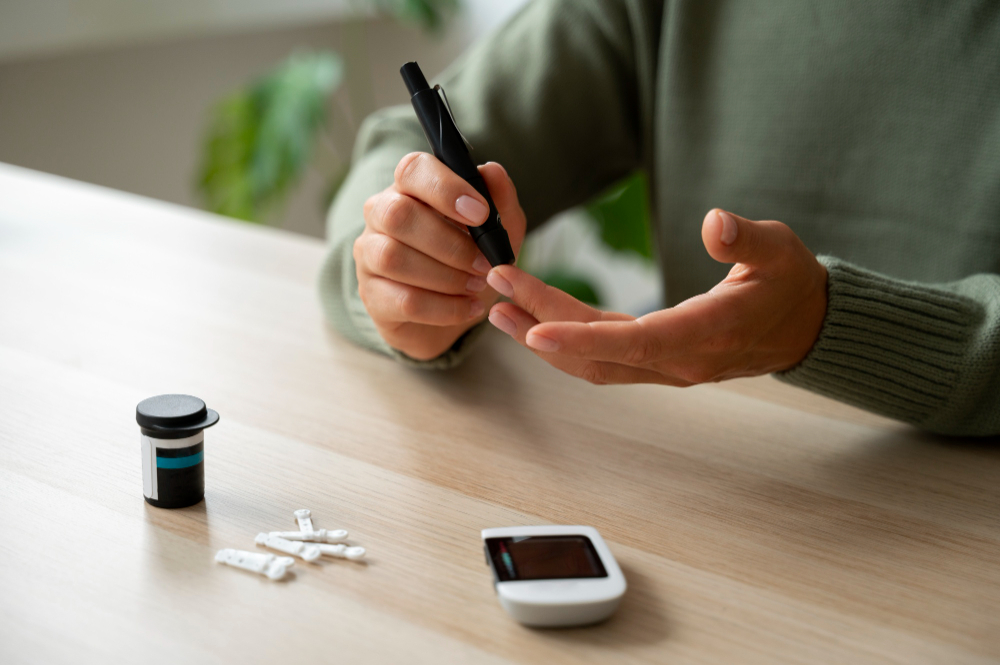Introduction
Many people believe that as long as their blood sugar levels appear normal, they have complete control over their diabetes. However, hidden symptoms of unmanaged diabetes can still affect your body, leading to long-term complications. This article will help you recognize these subtle signs and understand why regular monitoring and medical consultations are essential for managing diabetes effectively.
What Are the Hidden Signs of Unmanaged Diabetes?
1. Fatigue and Unexplained Weakness
Even with stable blood sugar readings, frequent tiredness may indicate that your body is struggling to use glucose efficiently. This could be due to insulin resistance or nerve damage caused by diabetes.
2. Increased Thirst and Frequent Urination
If you find yourself drinking more water than usual and making more trips to the bathroom, your kidneys may be overworking to remove excess sugar from your blood, signaling that your diabetes is not as controlled as you think.
3. Slow-Healing Wounds and Infections
High blood sugar levels can weaken the immune system, leading to slow wound healing and increased risk of infections. If you notice cuts or bruises taking longer to heal, it’s time to consult your doctor.
4. Blurry Vision and Eye Problems
Unmanaged diabetes can cause fluctuations in vision due to swelling of the eye’s lens. Over time, it may lead to more serious conditions like diabetic retinopathy, which can result in permanent vision loss.
5. Tingling or Numbness in Hands and Feet
Nerve damage, or diabetic neuropathy, is a common but often overlooked symptom. If you experience tingling, numbness, or burning sensations in your extremities, it could indicate poor diabetes management.
6. Unexplained Weight Loss
Sudden weight loss despite a normal diet might suggest that your body is not using glucose properly, forcing it to burn fat and muscle for energy. This is a red flag for uncontrolled diabetes.
7. Skin Changes and Dark Patches
Dark, velvety patches around the neck, armpits, or groin (acanthosis nigricans) may indicate insulin resistance, a precursor to diabetes complications.
The Importance of Regular Checkups and Doctor Consultations
Even if you feel fine, diabetes-related complications can develop silently. Regular visits to your doctor, along with routine blood tests, can help detect hidden issues early and prevent severe health consequences. A healthcare provider can adjust your treatment plan and suggest lifestyle changes to keep your diabetes truly under control.
How to Maintain Better Blood Sugar Control
- Monitor blood sugar levels regularly.
- Follow a balanced diet with fiber-rich foods and lean proteins.
- Engage in regular physical activity to improve insulin sensitivity.
- Stay hydrated and avoid sugary drinks.
- Manage stress through mindfulness and relaxation techniques.
- Take medications as prescribed and consult your doctor for adjustments.
Conclusion
Managing diabetes is more than just tracking sugar levels. Subtle signs of poor control can lead to severe complications if ignored. By staying vigilant and consulting your doctor regularly, you can ensure your health remains in check. If you experience any of the symptoms mentioned above, schedule an appointment with a healthcare professional today.
FAQs
Q1: Can I have diabetes complications even if my sugar levels are normal?
Yes, other factors like blood pressure, cholesterol, and nerve health also play a role in diabetes management.
Q2: How often should I visit my doctor for diabetes checkups?
It’s recommended to have a full diabetes checkup at least every three to six months.
Q3: What lifestyle changes can help me keep my diabetes in check?
Healthy eating, regular exercise, stress management, and proper medication adherence are key factors in controlling diabetes effectively.


